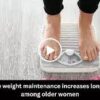When we think of a diet, we usually think of food. But not all diets feature strictly solid food. In some specific instances, a liquid diet – made up of fluids and foods that are normally liquid – might be a useful way of approaching nutrition.
There are different types of liquids diets, and in some circumstances, you may be asked by your health care provider to follow one for a brief time periods. Read on to learn about the different types of liquid diets, what foods are allowed, when they may be medically necessary and whether they’re a good idea for weight loss.
Easiest Diets to Follow
| RANK | DIET | OVERVIEW |
| No. 1 (tie) | Flexitarian Diet | With a flexitarian diet, also known as a semi-vegetarian diet, you don’t have to completely eliminate meat to reap the health benefits associated with vegetarianism. |
| No. 1 (tie) | TLC Diet | The Therapeutic Lifestyle Changes diet calls for eating plenty of vegetables, fruits, bread, cereals and lean meats. The guidelines are broad enough that you’ll have a lot of latitude with what you eat. |
| No. 3 (tie) | DASH Diet | The DASH diet is a flexible, balanced and heart-healthy eating plan promoted by the National Heart, Lung and Blood Institute. |
| No. 3 (tie) | Mediterranean Diet | This diet is based on the traditional way of eating in the countries that border the Mediterranean Sea. The diet primarily consists of plant-based foods, whole grains, beans, nuts, seafood, lean poultry and unsaturated fat from extra-virgin olive oil. |
| No. 5 | Mayo Clinic Diet | Using evidence-based behavioral science, the Mayo Clinic diet is a 12-week program that is designed to establish healthy habits for life. |
What Is a Liquid Diet?
A liquid diet, as its name indicates, provides all of your calories, vitamins and nutrients in liquid form. There are variations on this theme – clear liquids only, smoothies, power shakes, fruit juice cleanses. But all of them have one thing in common: Most nutrition experts warn against trying them for more than a few days.
“Liquid diets are often prescribed by doctors for a variety of reasons,” says Colette Micko, a registered dietitian nutritionist with Providence Little Company of Mary Medical Center Torrance in Torrance, California.
Types of Liquid Diets
There are four main types of liquid diets:
- Clear liquid diet.
- Full liquid diet.
- Meal replacement liquid diet.
- Detox/cleansing liquid diet.
Clear liquid diet
A clear liquid diet is the most restrictive and allows only clear fluids. A clear liquid diet is generally only recommend before specific medical procedures. This can include:
- Preparing for a screening or diagnostic test, such as a colonoscopy.
Full liquid diet
A full liquid diet, on the other hand, is a bit more robust and includes any foods that are liquid or will melt once you’ve ingested them. A full liquid diet requires no chewing. And the aim is to promote healing of your digestive tract – anywhere from your mouth to your colon – because they place less stress on your digestive system. Because liquid diets include little or no fiber, they can give your digestive system a break from processing nutrients that may be more difficult to digest.
Those reasons may include:
- Following oral surgery or when chewing or swallowing is difficult.
- Improving gastrointestinal symptoms associated with certain conditions such as Crohn’s disease.
- Recovery from bariatric or gastrointestinal surgery.
- Resting the bowel.
- Recovering from certain infections, such as pancreatitis.
Meal replacement liquid diet
Some liquid diets actually include some solid food too, depending on what the diet is being used for. In those instances, you may be substituting a liquid meal replacement for one or two meals daily.
Lisa Cooper, a registered dietitian for prevention and wellness services at Orlando Health in Florida, says you should “select a meal replacement containing adequate protein that’s fortified with vitamins and minerals.”
Your doctor or nutritionist can provide guidance about the best option for your situation.
In such instances, you may be working with “low-calorie liquid meal replacements in the form of shakes that may be recommended for assistance with portion control and ease of use,” says Wesley McWhorter, the director of culinary nutrition for the Nourish Program at the Center for Healthy Living at The University of Texas Health Science Center at Houston School of Public Health. Using a mostly liquid and part whole-food diet may add “structure and simplicity to a weight management plan.”
Detox/cleansing diet
The reason people do cleanses is that they want to get a jump-start on weight loss or they want to rid their body of “toxins.” Most cleanses have people severely restricting their calories by drinking only juice. These types of cleanses are neither effective nor safe.
Many cleanses restrict people to less than 1,000 calories per day, far less than the approximately 2,000 calories most people need.
And when it comes to “removing toxins,” it’s simply not necessary. Our body has a great detox system built in: our kidneys and liver. Together, these organs process toxic substances like alcohol and drugs into safe byproducts, neutralize and excrete the toxic ammonia that results from normal protein metabolism, prevent harmful carcinogens from being absorbed into the bloodstream and remove heavy metals from the body.
Do Liquid Diets Work for Weight Loss?
The short answer is, yes.
“It is restrictive (of calories), so you will lose weight,” says McWhorter.
In general, weight loss is basic math: Consume fewer calories than you burn, and you lose weight. That’s why this – and any restrictive, low-calorie diet – will work short term.
But that comes with a caveat:
“Is it sustainable? Absolutely not. Is it healthy? Absolutely not,” McWhorter says. He is far from alone in that belief.
“Following a liquid diet is not a good long-term strategy for weight loss,” says Kristen Smith, a registered dietitian, bariatric surgery coordinator for Piedmont Healthcare in Atlanta and author of a blog that promotes healthful eating.
Cooper agrees. Liquid diets can induce rapid and significant weight loss and must be managed by a health care provider, she says. “Long-term weight loss maintenance is dependent upon behavior change when returning to a whole food diet.”
Your dietitian or other health care provider can help you figure out your specific nutritional needs.
Are Liquid Diets Healthy?
Whether a liquid diet is healthy depends on what’s in it, why you’re using it and whether it provides adequate nutrition for your needs. Many faddish liquid diets may be a waste of money and might actually be dangerous if you stick to them too long.
“Most liquid diets claiming to cleanse or detox the body have no clinical research to support their claims,” Micko says. “Our liver, kidney, skin and gastrointestinal tract are built-in body cleansers. Our bodies have the ability to get rid of toxins through sweat, urine and bowel movements.”
So, if you’re thinking of moving to a liquid diet because you think you need a “detox,” skip it and look to more proven means of using nutrition to boost health. The Mediterranean diet has consistently been the top-ranked diet on U.S. News & World Report’s Best Diets list for the past several years and offers a better health argument than many liquid meal plans.
Still, for some people, a liquid diet might be a smart move under certain circumstances, and in those instances, you should focus on getting the right nutrients.
“When you’re on a liquid diet, it’s important to focus on high-protein liquids to help preserve lean body mass,” Micko says. “Most foods on a clear liquid diet are devoid of protein, so clear liquid supplements are typically recommended. Higher protein liquids on a full liquid diet can include regular or soy milk, bone broth and yogurt if permitted, in addition to protein supplements.”
Generally speaking, Micko says she “would not recommend a liquid diet for overall health unless it’s been medically indicated. Most liquid diets are insufficient in calories, protein, lack essential nutrients and lack research to support long-term weight loss or health outcomes.”
Thus, you should really only use a liquid diet if you’re instructed to do so by your health care provider.
Liquid Diet Foods: What You Can and Can’t Eat
Clear liquid diet foods
A clear liquid diet is often needed the day before certain tests, procedures or surgeries, like a colonoscopy, which require the stomach or intestines to be empty of food. A clear liquid diet may also be recommended short term to help relieve digestive problems, such as nausea, vomiting or diarrhea, or after certain types of surgery, including bariatric surgery.
Clear liquids are easily digested and leave no undigested waste products in your intestinal tract. A clear liquid diet includes thin, see-through liquids, such as:
- Water.
- Tea or coffee without milk or cream.
- Clear broth.
- Clear juices that contain no pulp, such as apple juice.
- Clear carbonated drinks or sodas, such as Sprite and ginger ale.
- Sports drinks, but not red ones.
- Popsicles that contain no milk, nuts, seeds or fruit chunks.
- Plain gelatin.
Because they contain so few calories and can’t provide adequate nutrients to sustain your body for long, they’re usually only intended for a couple of days at a stretch.
Full liquid diet foods
Liquid diets for weight loss go beyond clear liquids and allow foods that are liquified or will melt while being eaten (think ice-cream). They include:
- Milk, including plant-based milks.
- Other dairy products, including butter, yogurt and ice-cream.
- Strained or pureed soups and whole foods like apple sauce and mashed potatoes.
- Fruit and vegetable juices.
- Gelatin, pudding, custard and other similar gelatinous desserts.
- Broth.
- Coffee and tea.
- Popsicles and other juice-based frozen treats.
- Cooked cereals such as oatmeal or grits that have been blended and thinned with water or milk.
- Nut butters.
- Shakes and smoothies, often boosted with nutritional supplements.
A full liquid diet may sometimes include pureed whole foods, such as fruits, vegetables and even meats – think baby food consistency. Such items may be added in after you’ve been on a liquid diet for a while to help transition back to eating whole foods.
“There are liquid, or better to call them meal replacement, shakes that can be utilized to create an effective weight loss approach,” says Elizabeth DeRobertis, a registered dietitian and certified diabetes educator with Scarsdale Medical Group, an affiliate of White Plains Hospital in New York. These liquid meal replacements should contain adequate amounts of protein and macronutrients and micronutrients. And it should have enough calories to meet the body’s needs.
“A very low-calorie diet is considered to be in the 400 to 800 calorie range. This is extremely low, and it is hard to meet nutrient needs when someone is in this range. There is more research to support meal replacement plans that are in the 900 to 1,200 calorie range,” she says. “There have been programs around for many years, including OPTAVIA and SlimFast, that have clinical data to support the efficacy.”
Herbalife is another commercial weight loss program that uses shakes as part of the meal plan.
How Long Should You Be on a Liquid Diet?
Liquid diets of any type are not intended to be followed long term. They’re not recommended because they do not teach you how to maintain healthy eating habits for the long haul or provide adequate calories and nutrients.
A full liquid diet is generally recommended for only a few days to help you transition back to your normal diet. It is rarely used for longer than two weeks.
In some cases, however, people with “complex gastrointestinal diseases and/or certain types of cancer” may be told to follow a liquid diet longer term, says Micko. “It is possible for a liquid diet to be nutritionally adequate, but it takes careful planning and preparation.”
Liquid Diet Tips
Aim to drink a liquid meal replacement every few hours while awake. “If you go more than a few hours without drinking a liquid meal replacement you may have challenges controlling your hunger later in the day,” Smith says.
Ensure adequate hydration. Make sure you drink plenty of low-calorie beverages in between drinking liquid meal replacements.
Have a plan to wean off the liquid diet. “If someone starts a meal replacement program without acknowledging the importance of a proper transition, they will be more likely to gain the weight back, as they may return to poor eating habits,” DeRobertis says. “If they do the right transition, this is key to keeping the weight off.”
Consider replacing just a few meals with liquid meal replacements, not all of them. “I think it is important to have a least one meal per day. The idea here is for people to make changes that will have a long-term benefit,” DeRobertis says.
Join a nutrition or weight loss support group, or seek the guidance of a registered dietitian nutritionist. “The dangers would be if someone selected a program that was not properly fortified, and was too low in calories and macronutrients, DeRobertis warns. “Other dangers include wasting money and wasting time if someone has not done the right research on a safe approach, and also an approach they feel will be effective for them.”
DeRobertis says she has used meal replacements as part of her practice for many years, and has had patients lose “significant amounts of weight using meal replacements. I do believe that this can be an effective tool for weight loss, but it is certainly not for everyone.”
Liquid Diet Risks
Liquid diets don’t teach healthy eating.
“They take the guesswork out of making food selections and portion control,” says Smith. In addition, liquid diets could be void of essential vitamins and minerals your body needs. “Not all liquid diet plans offer adequate macro- or micronutrients,” he adds.
For example, when you juice fruits and vegetables, “you remove a lot of the good parts, like fiber that feeds our gut bacteria,” says McWhorter, a professional chef who teaches hands-on nutrition and cooking classes.
And if you’re following a liquid diet for weight loss, you probably won’t keep those pounds off. While eating plans that restrict calories will result in quick weight loss, they’re rarely sustainable, and most people regain all the weight – and often more.
Missing out on essential nutrients can lead to side effects such as fatigue and dizziness. Other side effects include constipation due to lack of fiber.
Bottom Line
If you decide to follow a liquid diet for more than a few days, consult your physician. Better yet, McWhorter says, simply focus more on what is in your meals. Look at healthier options like the Blue Zone and Mediterranean eating plans, which he says encourage “enjoying foods. It’s not drudgery, it’s a lifestyle, not just about losing 10 or 15 pounds by the end of the year. We call this ‘small nudges,’ not massive changes to your diet.”
That’s the way to long-term, healthy and, yes, enjoyable weight loss.
Copyright 2021 Associated Press. All rights reserved.
Source: https://health.usnews.com/wellness/food/articles/what-are-liquid-diets-and-are-they-healthy










































